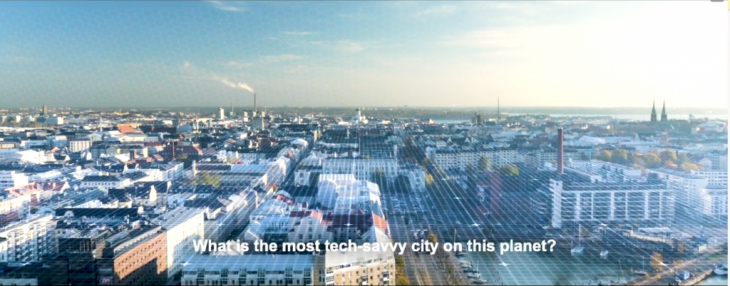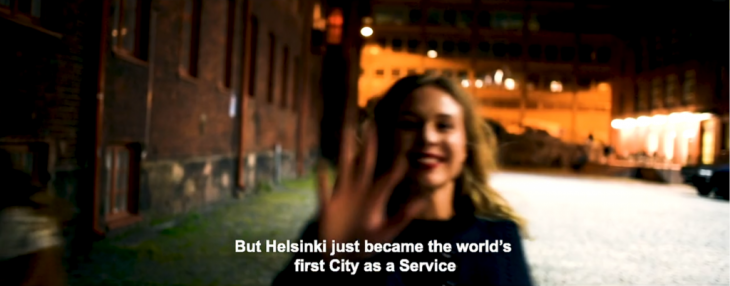Master in City & Technology 2019/20 – Term II
Seminar Name: The Role of Citizens in the City – unbiased CITY AS A SERVICE
Harmonizing social impact and private gain in the rollout of automated systems through citizen-centered urban planning
Total Hours: 30 hours
Faculty: Kathrin DiPaola & Julius Streifeneder


Credit: myhelsinki.fi/caas; “https://vimeo.com/358994313”
Course Abstract
After Mobility, Software and everything else as a Service, Helsinki took another leap and promotes itself as the world’s first City-as-a-Service, putting the citizen at the center.
While Helsinki stops short at a PR campaign, re-assuming the role of cities as primarily human habitats that find a new balance between social impact and profit-driven mechanisms in the fight against various challenges of our times seems to become ever more important as nation-states are less and less able to act. The 17 UN sustainable development goals set the agenda, the C40 group dynamic picks up momentum by making an impact on climate and social justice. However, the innovations and technologies needed for operational improvement and qualitative growth in cities mostly come from private profit-oriented corporations. What would an impact-driven approach to urbanizing technologies look like? Could there be true public-private urban co-labs? What kind of services render a “City-as-a-Service?” Is on-demand consumerism compatible with achieving collective goals?
The focus of this course is to get a deep understanding of the shifting relationship between citizen, city and corporations under the influence and emergence of new technologies in infrastructure (i.e. urban planning), services (i.e. mobility), social practices (communication), and political mechanisms (i.e. decision making processes). Students will be introduced to tools, working methods as well as cultural theories that allow for a differentiated approach to meet the needs of current and future planning processes.
Faculty

Dr. Kathrin DiPaola looks back at an impressive record of academic and industry standing and has worked for stellar institutions and companies in Europe and the U.S. She received a PhD from the University of Maryland with a dissertation on postcolonial literature in the South Pacific and a Master’s Degree from Arizona State University on Kafka’s fragment Amerika. Until 2010, she held appointments as Assistant Professor and was the youngest and first female Director of Deutsches Haus at New York University. In 2012, she left academia to pursue a career in mobility consulting, where she was responsible for the intersection between products/technologies in social and cultural processes. Clients included OEMs, city governments, suppliers, urban planners etc.
Last October, she joined Business Sweden in Berlin and took on an assignment as Senior Investment Advisor, helping German companies in the mobility sector grow in Sweden.

Julius Streifeneder is an expert on urban mobility and sustainable architecture with 6 years of strategy and design consulting experience as well as 12 years of planning experience. He has worked for Foster and Partners, Make Architects and Studio Fuksas and was part of the design and execution of large scale office, retail and education projects in Europe and the US. He has also worked with corporations, municipalities and the automotive industry on strategy, concept and product development in the field of urban mobility. He hold an M.Sc. in Climate Sensitive and Sustainable Design, a specialized postgraduate degree with a focus on energy efficient design and innovative building services. He is a sustainability expert with extensive knowledge on green building certification criteria.
